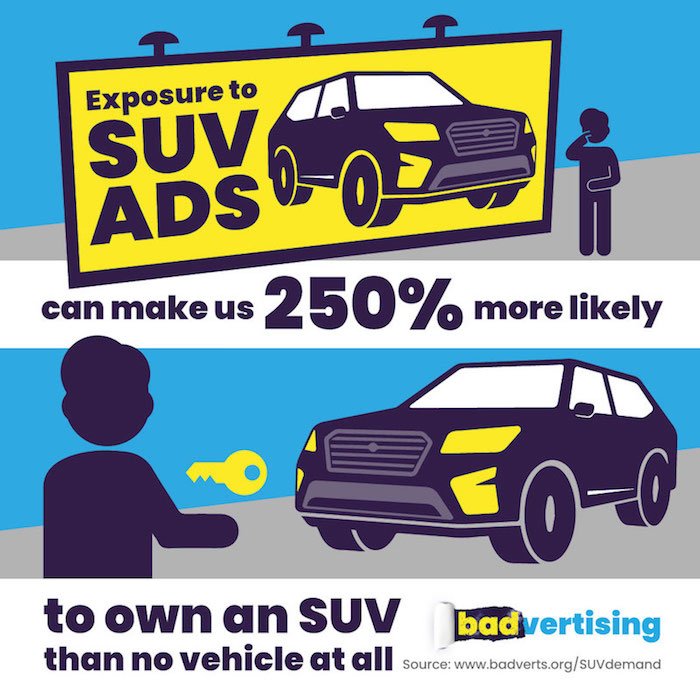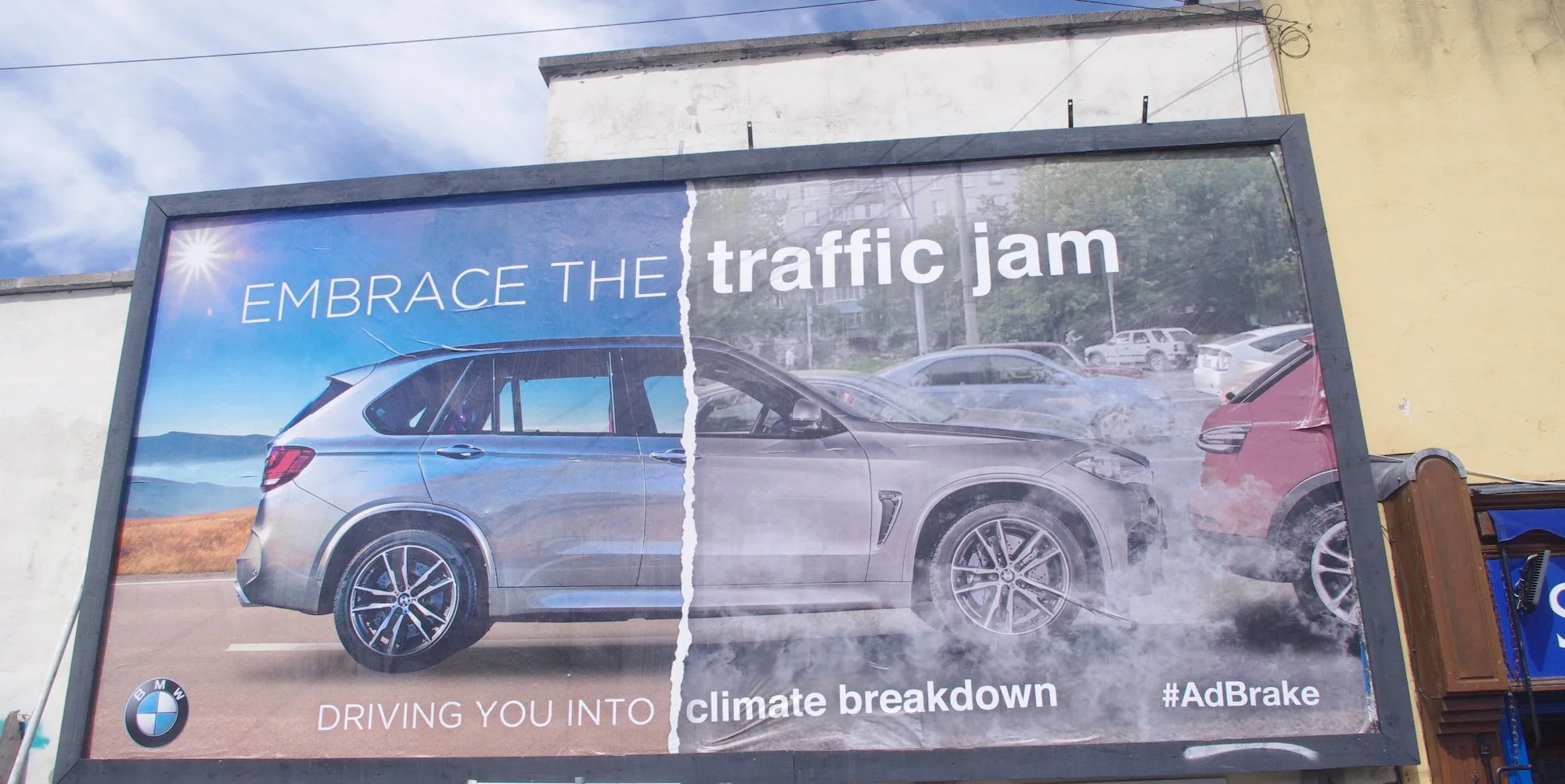Advertising drives demand for SUVs - new research says
Today we release new research using sophisticated statistical methods that provides evidence that demand for polluting SUVs is higher when people are exposed to their advertising. Surprisingly, the research also reveals that ‘green’ transport messaging - for example encouraging the use of public transport or cycling -has no effect on the more polluting choice and is effectively drowned out. While recent research on the links between advertising and harmful consumption has hinted at such a pattern, there is now solid statistical evidence to support the hypothesis. This new research comes at a critical point post-COP26 which has seen a plethora of greenwash advertising and claims from the advertising industry boasting about its commitment to net-zero via its AdNetZero pledge (and supported by ad agencies whose clients include the likes of Shell, BP and Volkswagen). At the same time, their promotion of high-carbon products and lifestyles and greenwash by some of the world’s greatest polluters has gone unaddressed by the industry.
SUV adverts do indeed work - changing people’s behaviour
Findings from this research are drawn from a questionnaire conducted online on a sample of 472 UK residents who reported about their exposure to SUV adverts and pro-ecological transport messages. The study compares responses from a group of SUV owners with those owning a standard vehicle (not large car) and those not owning any motor vehicle at all.
The results are clear. Participants who reported being “sometimes” exposed to SUV adverts as opposed to being “rarely” exposed, were 71% more likely to own an SUV than a standard car, and 250% more likely to own an SUV than to own no motor vehicle.
These results counter old arguments that defend inaction on advertising controls on the basis that advertising merely influences people’s choices between brands, and does not directly promote a particular behaviour or additional consumption. While consumers’ demand for a particular product or service is influenced by many factors including social norms, the physical environment and socio-economic status, exposure to advertisement does indeed play a significant part.
Sign our petition below to end advertising for the most polluting vehicles.
Drowned out pro-ecological messages
The other hypothesis tested in this research was whether pro-ecological messages would have any influence on reducing people’s desire to purchase an SUV. A recent study had already shown the ineffectiveness of such eco-friendly messaging in the face of online advertisements when assessing Germans’ purchases of electronics, fashion, and leisure airline flights.
This research finds similar results in the case of SUV demand. Exposure to green transport messaging has no effect on people’s desire to own an SUV. Pro-ecological messages pale in comparison with the amount of SUV adverts luring people into purchases and are, in effect, drowned-out. The persistence and high profile of SUV promotion appears to act as a block on making greener choices for more sustainable transport options.
“These findings suggest that governmental and campaigning groups that are trying to reduce CO2 emissions from SUVs may do well to focus at least as much on ending the practice of SUV advertising as on sending pro-ecological transport messages to the general public.”
Conclusion - what next?
This new evidence strengthens the body of literature supporting the hypothesis that advertising drives demand for ecologically damaging consumption when it comes to things like leisure airline flights, tobacco, and beef products. While demand for SUVs has skyrocketed in recent years - together with a steep increase in CO2 emissions - it is imperative to look at the context in which this takes place. Evidence shows that despite Governments’ pressure to phase out internal combustion engine cars (by 2030 in the UK), the automotive industry has kept on producing larger vehicles over the last years. This coincides with a plethora of marketing campaigns heavily promoting these larger models.
This research also points to the pressing need to redefine the scope and remit of advertising authorities. In a series of recent rulings, the UK advertising regulator dismissed complaints about greenwash and harmful advertising. But if the role played by advertising when driving demand for harmful products and services (such as SUVs and flights) was part of the regulator’s remit, it would significantly broaden what counts as ‘harmful advertising’.
Ending advertising for the most harmful products - such as SUVs - is a logical step from precedents for controls on the advertising of other damaging products like cigarettes - and an effective way to stop ads fuelling the climate emergency.
Burg Arts, Bristol. Artwork by Matt Bonner



